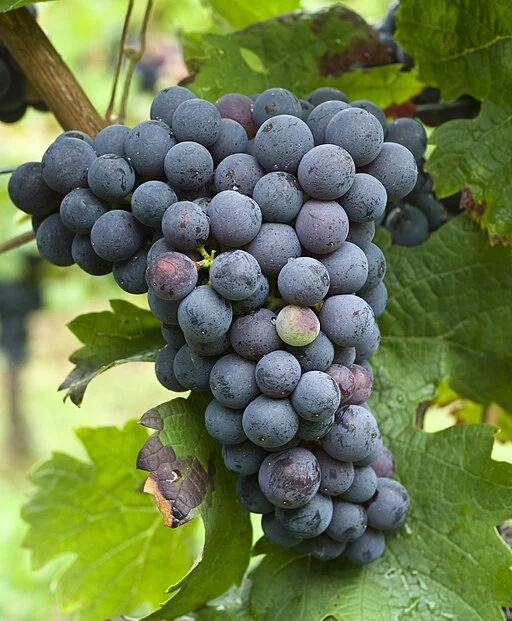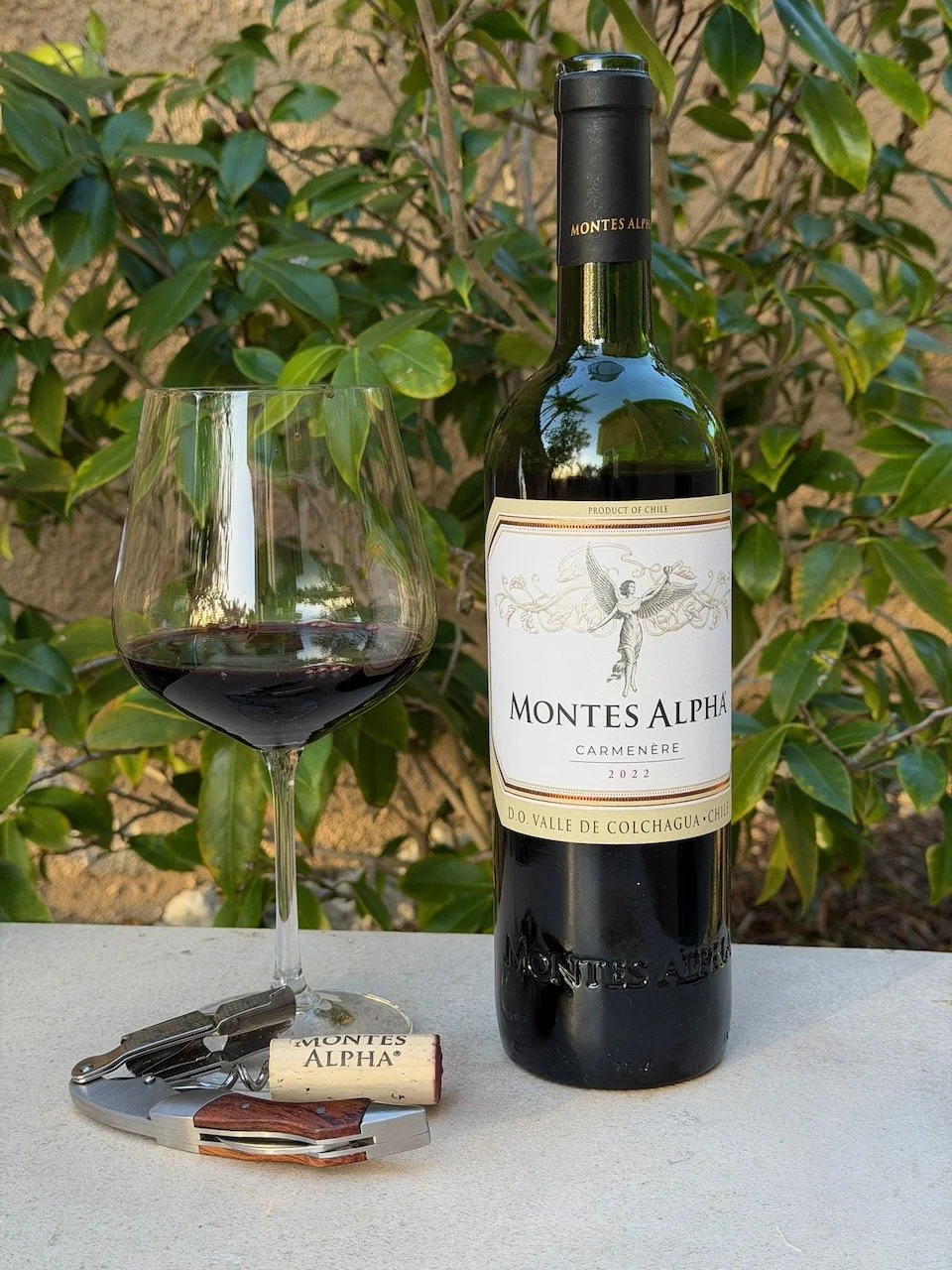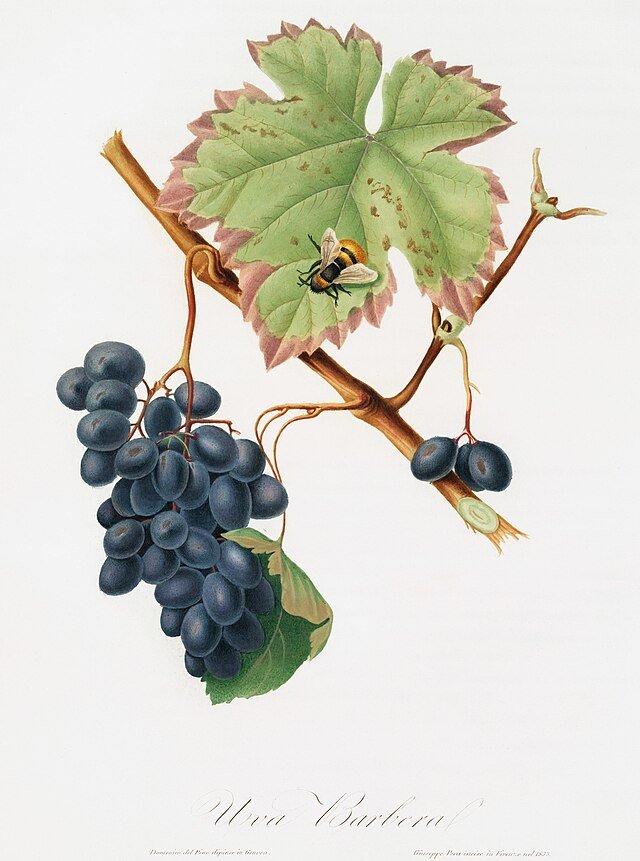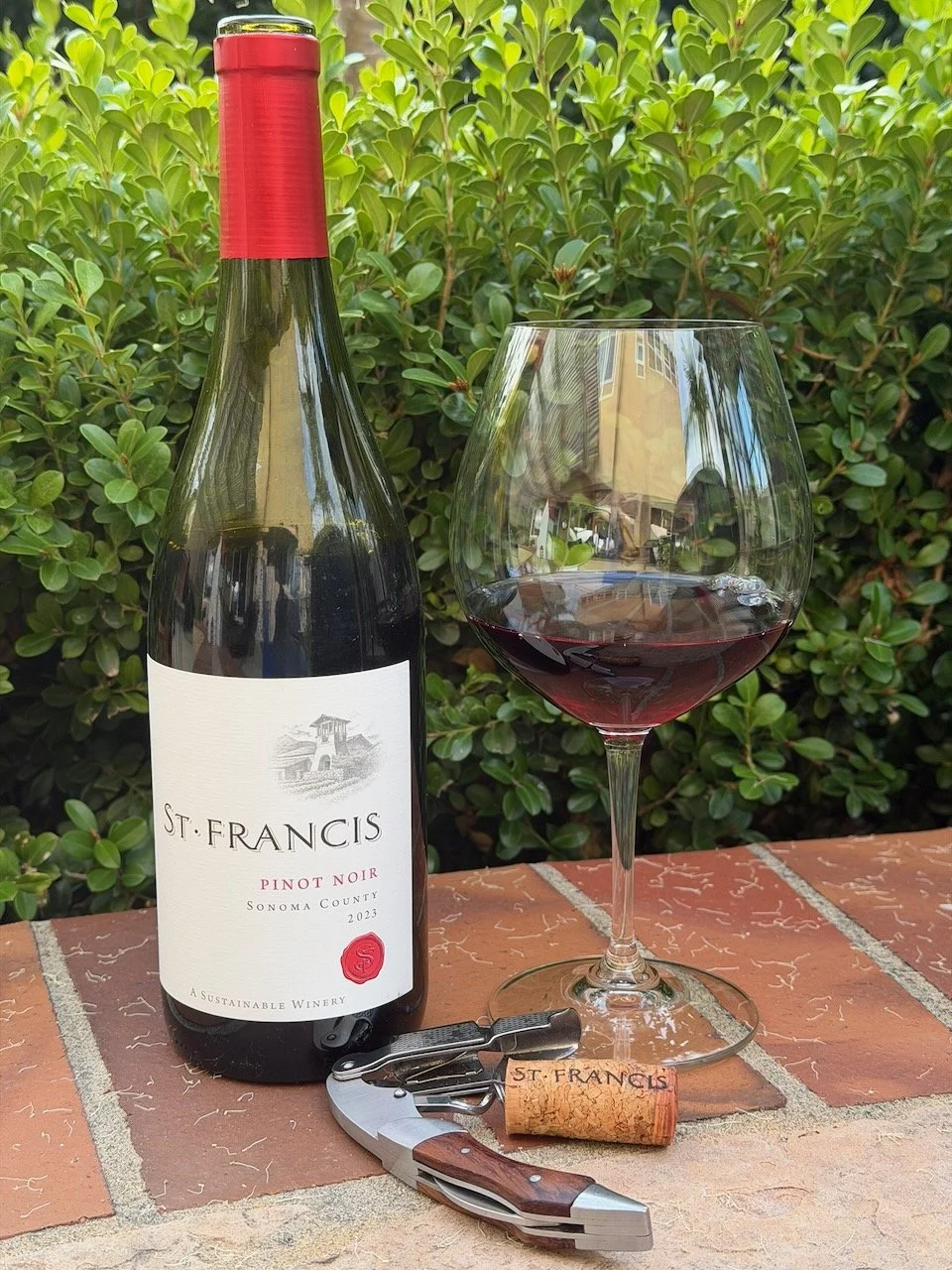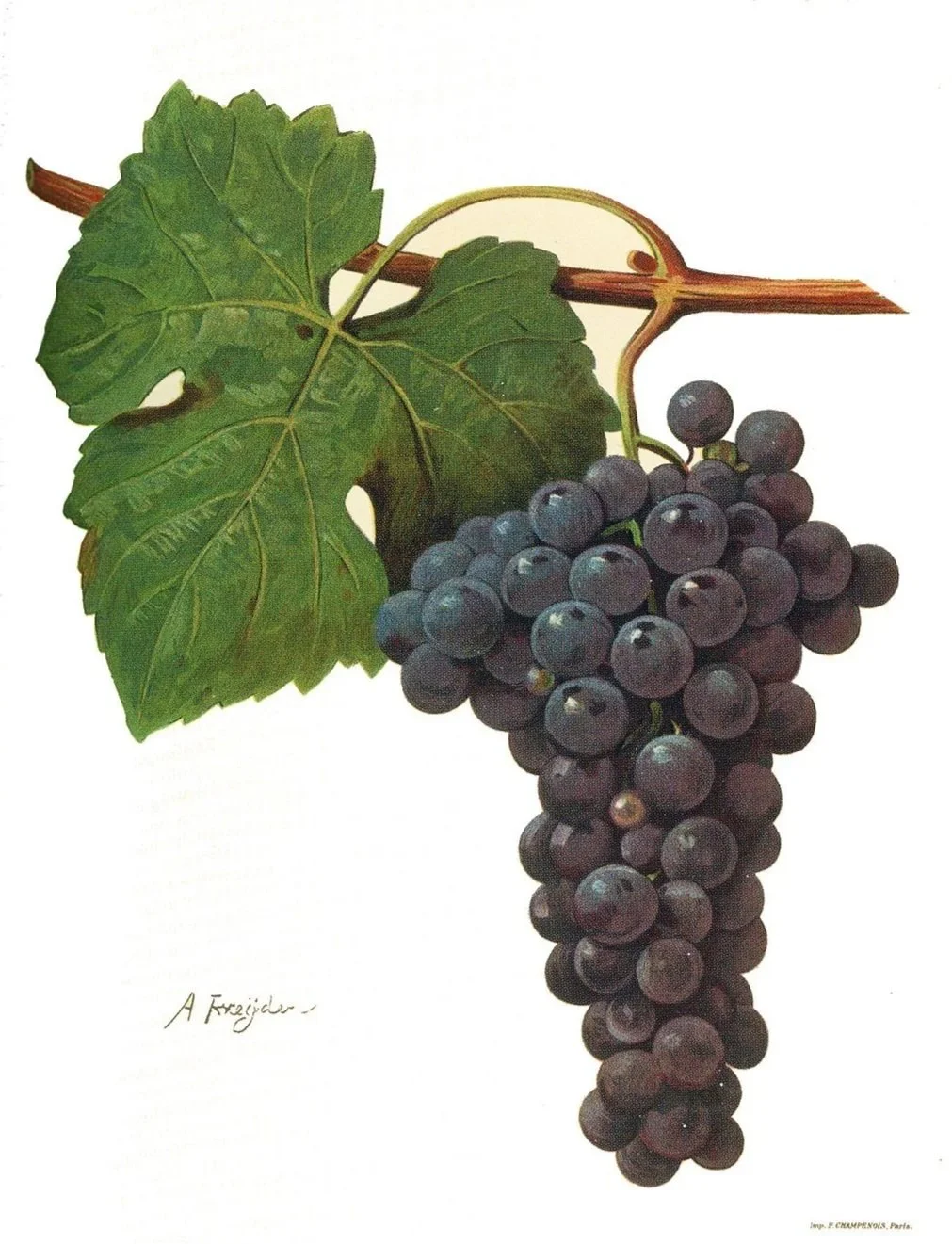Cabernet Franc 🍷
Image from Wikimedia Commons (Ursula Brühl, Julius Kühn-Institut (JKI),
Cabernet Franc (often referred to as Cab Franc) is a lesser know grape, but it’s actually the parent grape for both Merlot and Cabernet Sauvignon!
Nearly two-thirds of Cabernet Franc is grown in France, but Italy and the U.S. now have significant plantings.
Most famously, Cabernet Franc is used as the “third grape” in many Bordeaux blends.
While the Cabernet Franc grown in France tends to produce wines with lighter color, lighter body and higher acidity, Italy produces richer fruit flavors. The Sierra Foothills of northern California are producing fruit-forward, almost jammy wines with lower acidity.
Cabernet Franc’s adaptability and aromatic complexity make it both a standalone variety and a great blending component.
Generally, Cabernet Franc is medium-bodied, higher in acidity, and has softer tannins. Flavors attributed to Cabernet Franc include Raspberry, strawberry, red cherry and bell pepper.
The bell pepper notes come from methoxypyrazines in the grapes themselves, which are chemical compounds also found in green peppers. These chemical compounds are extracted from the grape skins during fermentation and maceration.
Serve a Cabernet Franc wine in a red wine glass at 60-68 °F after decanting for 30 minutes.


